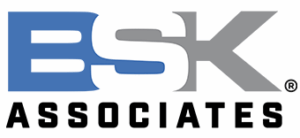Wastewater Discharge Testing in Food Manufacturing: Why Choosing the Right Lab Is Essential
In the food manufacturing industry, wastewater discharge is a critical compliance issue. Whether your facility processes dairy, meat, beverages, or packaged foods, your wastewater must meet specific discharge limits before it enters municipal systems or the environment.
Accurate sampling and testing are not just best practices—they are regulatory requirements. And the quality of your compliance program depends heavily on the expertise of the environmental testing laboratory you choose.
Regulatory Compliance Is a Business Imperative
Food manufacturers are subject to a complex framework of environmental regulations, including:
– EPA’s National Pretreatment Program
– NPDES (National Pollutant Discharge Elimination System) permits
– Local POTW (Publicly Owned Treatment Works) discharge limits
– State-specific environmental compliance programs
Non-compliance can result in:
– Fines and penalties
– Permit violations and enforcement actions
– Operational disruptions
– Reputational damage
Why Lab Expertise Makes a Difference
1. Accurate, Defensible Data
A qualified lab uses EPA-approved methods and maintains rigorous QA/QC protocols to ensure your results are accurate, traceable, and defensible during audits or inspections.
2. Industry-Specific Understanding
Food manufacturing wastewater often contains:
– High BOD/COD from organic residues
– Elevated FOG from oils and greases
– Variable pH and nutrient levels
– Cleaning agents and sanitizers
An experienced lab understands these profiles and can tailor your testing plan to meet permit requirements and operational realities.
3. Expertise in Sampling Techniques
Proper sampling is just as important as accurate testing. A lab experienced in both grab and composite sampling techniques ensures:
– The correct method is used based on your permit and discharge characteristics
– Samples are collected at the right time, location, and frequency
– Chain-of-custody and holding time requirements are strictly followed
Improper sampling is one of the most common causes of non-compliance. A lab that understands the nuances of sampling in food manufacturing environments can help you avoid costly mistakes.
4. Regulatory Reporting and Support
A strong lab partner doesn’t just deliver results—they help you interpret them so you can adequately prepare your discharge monitoring reports (DMRs) and effectively respond to regulatory inquiries. This support is invaluable during inspections, audits, or permit renewals.
What to Look for in a Lab Partner
When evaluating environmental testing labs, ask:
– Are they NELAC or state-certified for the parameters you need?
– Do they have experience with testing food manufacturing wastewater?
– Can they provide sampling services and ensure compliance with your permit?
– Are they reliable and responsive?
– Do they track and measure turnaround time success and offer digital reporting tools?
– Do they maintain a robust QA/QC program and achieve high percent success on performance testing samples?
Final Thoughts
Wastewater discharge compliance is a technical and regulatory challenge that requires precision, documentation, and expertise. Choosing a laboratory that understands your industry, your permit requirements, and the importance of proper sampling techniques is essential to staying compliant and avoiding costly disruptions.
If your facility is looking for a lab partner that delivers more than just test results—one that brings regulatory insight, sampling expertise, and industry-specific knowledge—make sure you’re working with a team that’s as committed to compliance as you are.




